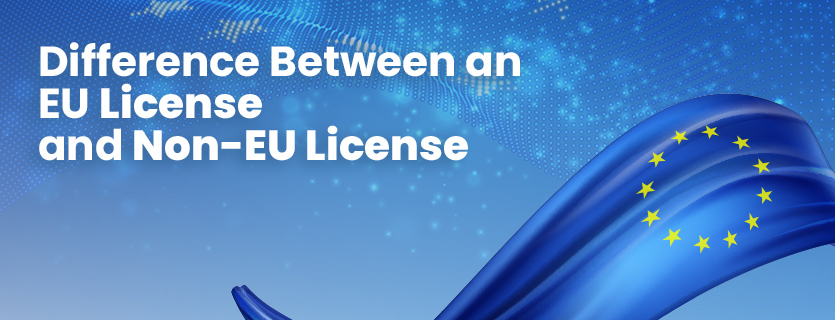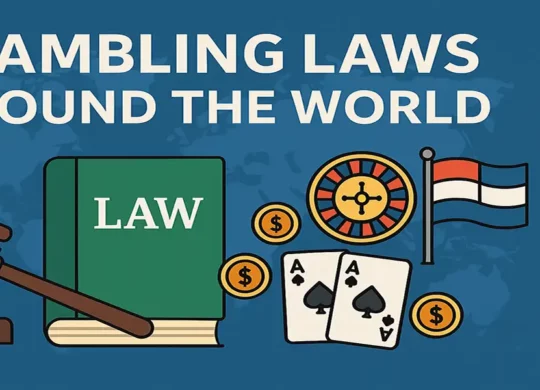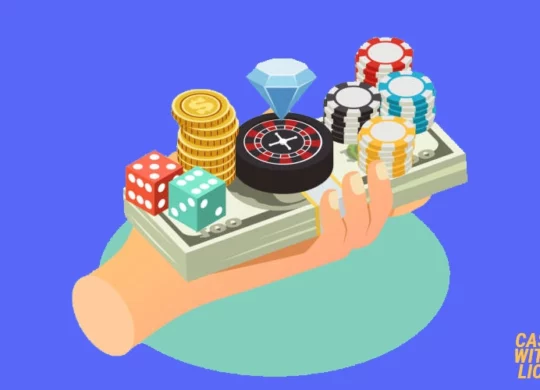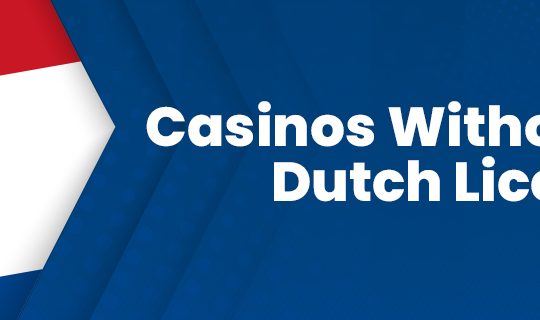Why Casino Licensing Matters More Than Ever in 2025
Online gambling continues to grow rapidly, with increasing regulation across Europe and internationally. While thousands of casinos operate globally, not all are created equal. Casino licensing ensures fairness, player protection, and legal accountability. In 2025, awareness of license origin helps players:
- Avoid scams or fraudulent operators
- Ensure fast and secure withdrawals
- Know their legal rights and tax obligations
With growing scrutiny from European governments, understanding licensing differences can help you make smarter and safer gambling decisions.
What Is an EU Casino License?
An EU casino license is issued by regulatory bodies within the European Union or EEA. These licenses are known for their strict regulatory standards, player protections, and transparency requirements. Notable EU/EEA licensing authorities include:
- Malta Gaming Authority (MGA) – One of the most respected regulators globally
- Swedish Gambling Authority (Spelinspektionen) – Strictly regulates the Swedish market
- Estonian Tax and Customs Board – Gaining recognition for efficient regulation
Europe has many members that regulate online gambling within their jurisdiction. The European Gaming and Betting Association (EGBA) regulates the European gambling market and makes sure that operators offer fair and competitive products. Currently, EGBA has only a few members, which we can expect to grow with time.
Malta Gaming Authority
The Malta Gaming Authority is one of the most reputed regulators out there. MGA was established in 2001 and is one of the oldest gambling authorities in the world. Casino businesses that want to operate in the EU market can get a license from the Malta Gaming Authority. Players from all over the globe find MGA casinos most reliable and credible.
The MGA license is one of the most prestigious and expensive gambling licenses. Many casino companies start their business with other licenses and then apply for a Malta Gaming license. MGA offers both B2C and B2B gambling licenses to different casino businesses. Similar to the UKGC, the Malta Gaming Authority also has an open-licensing model.
Also read: 6 new MGA casino with great bonuses
Sweden – Swedish Gambling Authority
Rules regarding gambling in Sweden are different than in other EU countries. The central body that regulates gambling in the country is the Swedish Gambling Authority. This authority does not issue licenses to offshore casino businesses. However, many gambling enthusiasts in Sweden are open to the idea of offshore casinos operating in the country.
The Swedish government ensures the safety and legality of online gambling in the country. The Swedish Gambling Authority issues six different types of licenses for online betting, commercial online gambling, and others.
Also read: Is Gambling Legal in Sweden?
Estonia – Estonian Tax & Customs Board
The Estonian Tax and Customs Board regulates all forms of gambling activities in Estonia. This authority is also responsible for licensing individual gambling operators and businesses within Estonia. The two main laws governing online gaming in the country are Gambling Act and the Gambling Tax Act.
As Estonia is a member of the European Union, its gambling laws should be in accordance with the EU regulations. The Estonia Tax and Customs Board started issuing licenses to the online gambling companies in 2010. All offshore casino companies who want to operate in Estonia must have an Estonian license.
Benefits of EU Casino Licenses:
- High consumer protection – Dispute mechanisms, audit trails, and complaint handling
- Strict anti-money laundering (AML) compliance
- Transparency in terms and conditions
- Compliance with EU tax laws
These licenses are often more trusted by European players and enforce responsible gambling practices.
What Is a Non-EU Casino License?
A non-EU casino license is issued by jurisdictions outside the European Union, such as:
- Curacao eGaming (most common)
- Kahnawake Gaming Commission (Canada)
- Costa Rica Gaming Authority (loosely regulated)
These licenses typically offer looser regulations, making them attractive to operators looking for lower operational costs and fewer restrictions.
Pros:
- Easier access for international players
- Higher bonuses and cashback offers
- Faster onboarding with fewer KYC demands
Cons:
- Weaker player protection – No solid dispute resolution
- Vague terms and unfair bonus conditions
- Limited regulatory oversight and enforcement
Non-EU licensed casinos can be appealing but come with greater risk, especially for EU players.
Curacao eGaming License
Curacao eGaming license is one of the most popular non-EU gambling licenses among casino operators. This license is considered the best for casino startups and small operators.
The Curacao license is well-known for its cost-effective and easy licensing process. As this license specifies all major payment methods including bitcoin, you will find many bitcoin casinos that are licensed under the Curacao Gambling Authority. Another advantage of having this license is that operators can offer both casino games and sports betting options on the same license.
Kahnawake Gaming Commission
The Kahnawake Gaming Commission is a famous regulatory authority in Canada that issues gambling licenses to different casino businesses. Established in 1999, this authority offers responsible and fair gambling practices to players.
The application process and fees for the Kahnawake Gambling license are comparatively lower than the other EU licenses. The jurisdiction is considered trustworthy and reliable among gambling enthusiasts. The license issued by the Kahnawake Gambling Commission is affordable for many casino startups and small gambling businesses.
Costa Rica Gaming License
The Costa Rica Gaming License allows casino businesses to operate from its jurisdiction. There is no defined license in Costa Rica. However, many casino startups can conduct online gambling activities from Costa Rica.
Some casino companies that operate in Costa Rica offer payments in cryptocurrency. What makes Costa Rica more popular is that the government here is business-friendly and encourages the use of cryptocurrency. For the casinos wishing to operate any crypto gambling business, Costa Rica is the perfect place.
Alderney Gambling Control Commission
Established in 2000, Alderney Gambling Control Commission is an independent and non-political authority that regulates online gambling in the states of Alderney. Although it is closely connected to the UK, Alderney is neither a part of the United Kingdom nor the European Union. Currently, many online casinos and sports betting sites are licensed under the Alderney Gambling Authority.
These gambling businesses are attracted to this regulator because of low taxes and outstanding IT support. Similar to the above-mentioned non-EU authorities, Alderney also ensures player protection, fair gaming, and operator accountability.
Read more: Payment Methods at casinos without a license
EU vs Non-EU Casino Licenses: Key Differences
Here’s a clear comparison of the most important factors:
| Feature | EU License | Non-EU License |
| Regulatory Authority | MGA, Spelinspektionen | Curacao, Kahnawake, etc. |
| Player Protection | Strong (dispute resolution, etc.) | Varies, often limited |
| Tax Transparency | Compliant with EU tax laws | Not always compliant |
| Game Fairness | Strict auditing, RTP enforcement | Lax or self-certified |
| Bonus Rules | Often restricted | More generous, but riskier |
| Accessibility | Geoblocked in some EU countries | Freely accessible, but legal risk |
As you can see, EU-licensed casinos prioritize long-term security and legality, while non-EU sites prioritize convenience and aggressive marketing.
Registration Comparison Between EU and Non-EU Gambling Licenses
Check below our comparison between EU and Non-EU gambling licensing authorities. We have reviewed top regulators, Malta Gaming Authority and Kahnawake Gambling Commission, from both the categories and have created a list of comparisons between their features.
Duration to get a license
Usually, Malta Gaming Authority takes more time to issue a gambling license as compared to the Kahnawake Gambling Commission. The duration to get a license from MGA is around 12 weeks, as applicants may also have to go through face-to-face meetings and more paperwork procedures. Kahnawake takes around eight weeks to issue a license, which is quite faster than MGA.
Application process
The process of getting a license from the Malta Gaming Authority is more complex than getting one from other authorities. MGA has set strict criteria for issuing licenses to casino operators. Applicants have to submit all the necessary documents and go through the KYC process to get an MGA license.
On the other hand, the Kahnawake Gambling Commission has a simple process of licensing. There are certain gaming standards and ethics that casino operators need to follow to get a license from Kahnawake.
Cost of Licensing
Among all the gambling licenses, the MGA license is considered the most expensive one. The fees for an MGA license may vary depending upon the types of services a casino offers. Aside from this, operators may have to pay additional taxes. Contrary to that, the Kahnawake license is cost-effective and is cheaper than the MGA license.
Additional benefits
The Malta Gaming Authority allows operators to enter the EU gambling market. With an MGA-issued license, casino operators can also offer their products to players in different countries except for the illegal gambling regions. Moreover, the Malta Gaming Authority charges a 5% tax on the revenue generated from Malta-based players.
On the other hand, the Kahnawake Gambling Commission charges a 0% tax rate on gambling licenses. With a Kahnawake license, online casinos can operate in almost all countries except where gambling is prohibited.
Is It Safe to Play at Non-EU Licensed Casinos?
The short answer: sometimes, but caution is essential. Some non-EU casinos operate legitimately and provide decent experiences. However, players should be aware of the downsides:
- Slower payouts or unclear withdrawal rules
- No recourse in case of disputes
- High-risk bonus terms that are difficult to fulfill
- No obligation to report to EU authorities
How to Stay Safe:
- Check the casino’s license number and jurisdiction
- Search for third-party reviews and reputation indicators
- Avoid casinos without any visible licensing
If you’re looking for non-EU casinos with fast payouts and transparency, verify Curacao license numbers via the eGaming site and stick to known brands.
Learn how to play: How to play craps dice game
Taxes, Payouts & Legal Status: What EU Gamblers Need to Know
In 2025, the licensing origin of an online casino can significantly affect how your winnings are taxed, how fast you get paid, and whether your gameplay is even legal in your country. This section breaks down the essential details every EU gambler should understand before choosing between an EU or non-EU licensed casino.
Taxes
In most EU countries, winnings from EU-licensed casinos are tax-free. However, earnings from non-EU casinos may be subject to tax, depending on your country of residence.
Payout Speeds
EU-licensed casinos are more likely to follow strict withdrawal timelines. Non-EU sites may:
- Delay processing
- Request extra verification documents post-withdrawal
- Set hidden daily/monthly limits
Legal Gray Areas
- In Sweden, playing at non-SGA licensed casinos is discouraged but not illegal.
- In Germany, some non-EU casinos are blocked via IP filters, but VPN usage bypasses restrictions.
Understanding the legal implications based on your residence is critical.
Real-World Scenarios: Which License Is Right for You?
Choosing between an EU or non-EU casino license isn’t one-size-fits-all. Your ideal option depends on your gambling habits, risk tolerance, and priorities—whether that’s security, bonuses, or payout speed. In this section, we explore real-world player scenarios to help you decide which type of license best suits your personal gaming preferences in 2025.
- The Cautious EU Player: You prioritize security, support, and legal clarity. A licensed MGA or Swedish-licensed casino is your best option.
- The High-Roller Seeking Big Bonuses: You’re comfortable with risk and want high-value welcome packages. Non-EU licensed platforms might appeal more, but research is essential.
- The Casual Mobile Player: You want speed, simplicity, and fast withdrawals. A hybrid option – an international brand with both EU and offshore licenses – could be ideal.
How to Check a Casino’s License Before You Play
Verifying a casino’s license is simple but crucial. Here’s how:
- Scroll to the website footer – Look for license info and a clickable regulator badge.
- Visit the regulator’s website – Check if the license number is listed and active.
- Google the casino’s reputation – Look for reviews and complaint history.
Warning Signs:
- No licensing information: An unlicensed casino, is not the same as a casino without Swedish license.
- Generic or unverifiable license numbers: Will be the same as an unlicensed casino.
- Poor player reviews or reports of withheld winnings: Clear sign of a lack in players trust. Your are a player, so you will want to avoid such casinos.
Conclusion: EU or Non-EU – Which Is Better in 2025?
There is no universal answer. It depends on your priorities:
- Choose EU-licensed casinos if you want transparency, protection, and legal clarity.
- Consider non-EU casinos if you seek bigger bonuses and less regulation – but accept the risks.
As online gambling continues to expand in 2025, so does the importance of playing smart. Licensing is your first defense against fraud and frustration. Use the tools above to vet any casino before depositing, and always gamble responsibly.










